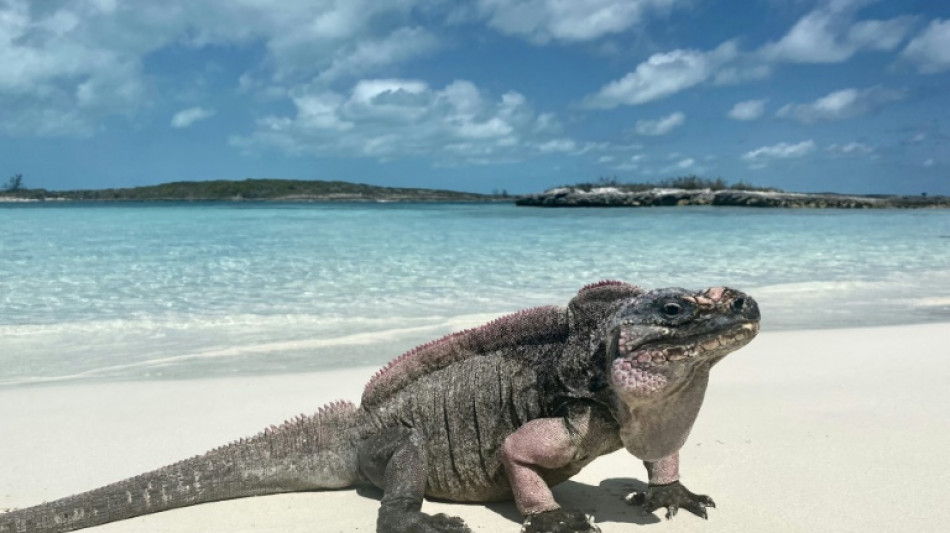
-
 M23 militia says to pull out of key DR Congo city at US's request
M23 militia says to pull out of key DR Congo city at US's request
-
Thousands of glaciers to melt each year by mid-century: study
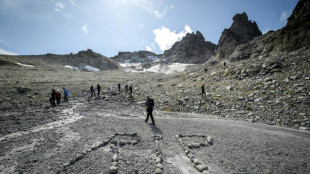
-
 China to impose anti-dumping duties on EU pork for five years
China to impose anti-dumping duties on EU pork for five years
-
Nepal starts tiger census to track recovery
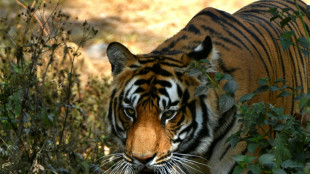
-
 Economic losses from natural disasters down by a third in 2025: Swiss Re
Economic losses from natural disasters down by a third in 2025: Swiss Re
-
Indonesians reeling from flood devastation plea for global help
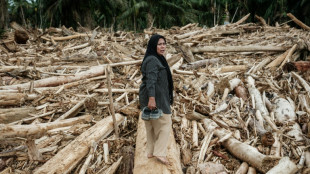
-
 Timeline: How the Bondi Beach mass shooting unfolded
Timeline: How the Bondi Beach mass shooting unfolded
-
On the campaign trail in a tug-of-war Myanmar town

-
 Bondi Beach suspect visited Philippines on Indian passport
Bondi Beach suspect visited Philippines on Indian passport
-
Kenyan girls still afflicted by genital mutilation years after ban
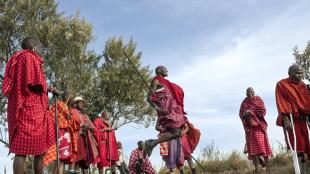
-
 Djokovic to warm up for Australian Open in Adelaide
Djokovic to warm up for Australian Open in Adelaide
-
Man bailed for fire protest on track at Hong Kong's richest horse race

-
 Men's ATP tennis to apply extreme heat rule from 2026
Men's ATP tennis to apply extreme heat rule from 2026
-
Cunningham leads Pistons past Celtics, Nuggets outlast Rockets

-
 10-year-old girl, Holocaust survivors among Bondi Beach dead
10-year-old girl, Holocaust survivors among Bondi Beach dead
-
Steelers edge towards NFL playoffs as Dolphins eliminated

-
 Canada plow-maker can't clear path through Trump tariffs
Canada plow-maker can't clear path through Trump tariffs
-
Bank of Japan expected to hike rates to 30-year high

-
 Cunningham leads Pistons past Celtics
Cunningham leads Pistons past Celtics
-
Stokes tells England to 'show a bit of dog' in must-win Adelaide Test

-
 EU to unveil plan to tackle housing crisis
EU to unveil plan to tackle housing crisis
-
EU set to scrap 2035 combustion-engine ban in car industry boost

-
 Australian PM visits Bondi Beach hero in hospital
Australian PM visits Bondi Beach hero in hospital
-
'Easiest scam in the world': Musicians sound alarm over AI impersonators

-
 'Waiting to die': the dirty business of recycling in Vietnam
'Waiting to die': the dirty business of recycling in Vietnam
-
Asian markets retreat ahead of US jobs as tech worries weigh

-
 Security beefed up for Ashes Adelaide Test after Bondi shooting
Security beefed up for Ashes Adelaide Test after Bondi shooting
-
Famed Jerusalem stone still sells despite West Bank economic woes

-
 Trump sues BBC for $10 billion over documentary speech edit
Trump sues BBC for $10 billion over documentary speech edit
-
Chile follows Latin American neighbors in lurching right

-
 Will OpenAI be the next tech giant or next Netscape?
Will OpenAI be the next tech giant or next Netscape?
-
Khawaja left out as Australia's Cummins, Lyon back for 3rd Ashes Test

-
 Australia PM says 'Islamic State ideology' drove Bondi Beach shooters
Australia PM says 'Islamic State ideology' drove Bondi Beach shooters
-
Scheffler wins fourth straight PGA Tour Player of the Year

-
 Security beefed up for Ashes Test after Bondi shooting
Security beefed up for Ashes Test after Bondi shooting
-
Wembanyama blocking Knicks path in NBA Cup final

-
 Amorim seeks clinical Man Utd after 'crazy' Bournemouth clash
Amorim seeks clinical Man Utd after 'crazy' Bournemouth clash
-
Man Utd blow lead three times in 4-4 Bournemouth thriller

-
 Stokes calls on England to 'show a bit of dog' in must-win Adelaide Test
Stokes calls on England to 'show a bit of dog' in must-win Adelaide Test
-
Trump 'considering' push to reclassify marijuana as less dangerous
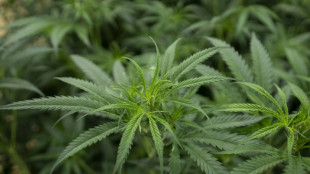
-
 Chiefs coach Reid backing Mahomes recovery after knee injury
Chiefs coach Reid backing Mahomes recovery after knee injury
-
Trump says Ukraine deal close, Europe proposes peace force

-
 French minister urges angry farmers to trust cow culls, vaccines
French minister urges angry farmers to trust cow culls, vaccines
-
Angelina Jolie reveals mastectomy scars in Time France magazine

-
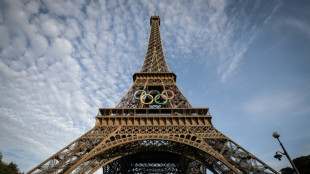 Paris Olympics, Paralympics 'net cost' drops to 2.8bn euros: think tank
Paris Olympics, Paralympics 'net cost' drops to 2.8bn euros: think tank
-
Chile president-elect dials down right-wing rhetoric, vows unity

-
 Five Rob Reiner films that rocked, romanced and riveted
Five Rob Reiner films that rocked, romanced and riveted
-
Rob Reiner: Hollywood giant and political activist

-
 Observers say Honduran election fair, but urge faster count
Observers say Honduran election fair, but urge faster count
-
Europe proposes Ukraine peace force as Zelensky hails 'real progress' with US


Ecotourism giving rare iguanas a sweet tooth
Ecotourists feeding grapes to rock iguanas on remote islands in the Bahamas have given them a sweet tooth and high blood sugar, researchers said Thursday, warning of unknown effects on the health of the vulnerable reptiles.
Northern Bahamian rock iguanas living on the Exuma Islands are so hooked on the tasty tourist treats that they rush to the beaches when they hear boats approaching.
"For a tour operator it was a wonderful way to ensure that you would be able to see these animals and people would have these close and personal interactions," said Charles Knapp, of the John G Shedd Aquarium in the United States.
Conservationists had already started to become concerned that the non-native fruit, delivered to the iguanas on the end of skewers, was making the large lizards less wary of humans and potentially vulnerable to smugglers for the pet trade.
But those closely involved with the creatures began to suspect the diets were causing even more of an upset. The clue was in their poo.
A Northern Bahamian rock iguana which consumes the leaves and fruiting plants that nature intended has faeces that scientist Susannah French, of Utah State University, likens to a "Cuban cigar -- a bunch of rolled up leaves".
The excretions of those that had developed a taste for the tourists' grapes are a watery mess.
That prompted researchers to look into the impacts of these sugar-packed diets on the iguanas' bodies.
Their study, published in the Journal of Experimental Biology, first looked in the lab at the effects of a high glucose diet on common green iguanas.
"We were able to then basically deliver glucose over time to mimic the sort of intake these iguanas in the field were getting," French told AFP. They found that these animals struggled to regulate their blood glucose levels.
- Harmful habit? -
Next researchers travelled to the Bahamas and captured a total of 48 iguanas on four islands, half from populations frequented by tourists and the other half from more sheltered and remote outcrops.
Each iguana was fed a glucose drink and researchers then monitored their blood sugar for almost a day.
They found that those on the islands visited by tourists had the highest glucose peaks, with some remaining high for hours, while those iguanas that never saw humans saw levels rise at a slower rate and return to normal more quickly.
While the researchers concluded that the sugary feeding regime affects iguanas physically, they do not yet know how it might impact their health.
"In other species, this would be a pathology. We would say yes this is diabetes if it was mice or humans," said French, who said that further research would investigate a range of potential health effects, from impacts on immunity to reproduction.
Researchers are also looking at how losing their appetite for their normal grazing of local plants might affect the wider environment on the islands.
The iguanas are by no means the only species affected by well-meaning tourists packing inappropriate snacks.
In 2018 researchers found green turtles fed by tourists in the Canary Islands had markers in the blood linked to high consumption of proteins and fat.
Knapp said conservationists acknowledge the importance of tourism for the Bahamas and said tour operators had shown willingness to evolve their tactics -- switching from bread to grapes -- to avoid harming the iguanas.
But there has been a recent proliferation of smaller boat operations, he said, making it harder to make sure people were acting ethically.
"We do not want to try to mandate a complete stoppage, we're just trying to provide the information that they can then use to help develop a plan that perhaps is more sustainable," he added.
O.Krause--BTB




